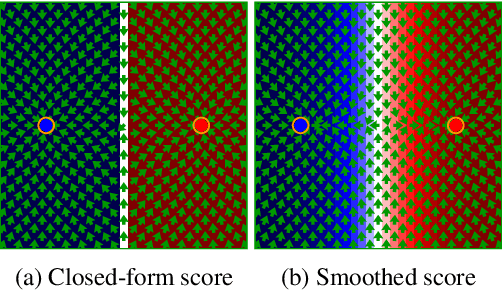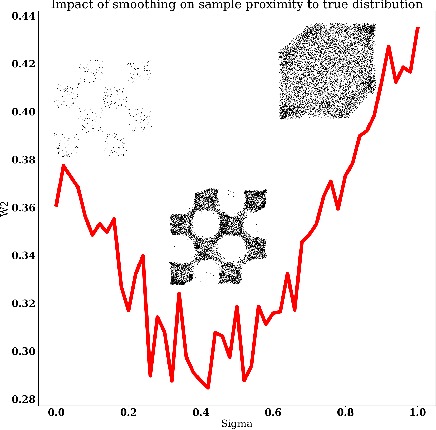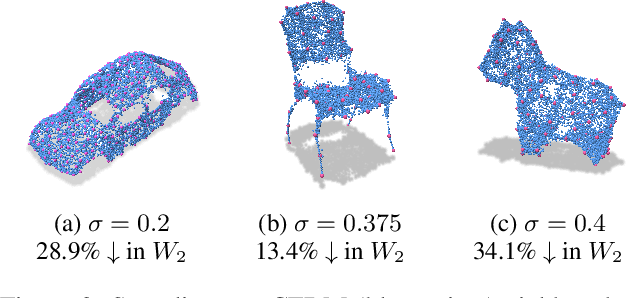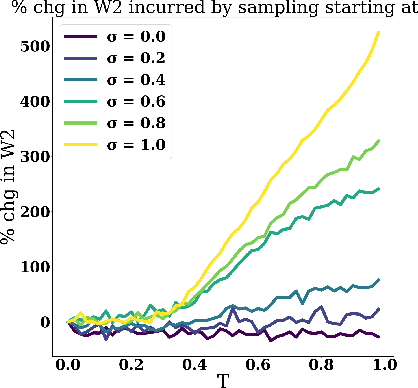Closed-Form Diffusion Models
Paper and Code
Oct 19, 2023



Score-based generative models (SGMs) sample from a target distribution by iteratively transforming noise using the score function of the perturbed target. For any finite training set, this score function can be evaluated in closed form, but the resulting SGM memorizes its training data and does not generate novel samples. In practice, one approximates the score by training a neural network via score-matching. The error in this approximation promotes generalization, but neural SGMs are costly to train and sample, and the effective regularization this error provides is not well-understood theoretically. In this work, we instead explicitly smooth the closed-form score to obtain an SGM that generates novel samples without training. We analyze our model and propose an efficient nearest-neighbor-based estimator of its score function. Using this estimator, our method achieves sampling times competitive with neural SGMs while running on consumer-grade CPUs.
 Add to Chrome
Add to Chrome Add to Firefox
Add to Firefox Add to Edge
Add to Edge